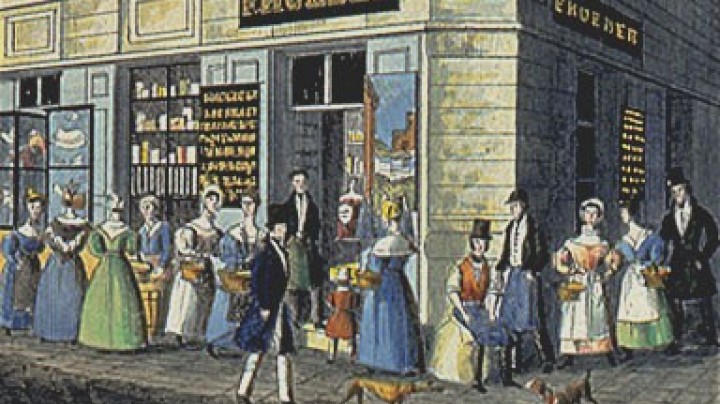Everything one’s heart desires – Europe’s commercial arteries
In the early modern period itinerant traders and pedlars travelled across Europe, supplying people with wares of every kind. By doing so they helped to distribute consumer goods.
Most of the itinerant traders came from regions where there was not much opportunity to earn a living in agriculture or commerce. Such regions were to be found, for example, in the Alps, although they had been linked to the major trans-European trading routes since the Middle Ages. In many cases the itinerant traders sold goods which were produced in the places they came from – for example straw hats from the mountain regions of South Tyrol or wooden articles from the Gottschee district in Carniola (now in Slovenia). In this way commercial relations and networks were built up, spreading throughout Europe from the traders’ home regions.
The range of goods sold by the itinerant traders included spices and sweetmeats, clocks and jewellery, tobacco, medicines and miracle cures, ribbons, lace and buttons, cutlery and crockery, pamphlets, books and prints. The goods had to be durable and easy to transport, because the traders carried them on their backs or in small carts. Most of the things they sold were important but not indispensable, and were generally produced in workshops or by people working at home. In this way the itinerant traders played a part in distributing consumer goods throughout Europe. However, this did not mean that tastes or the way people used goods were becoming the same all over the continent.
In the course of the eighteenth century the trans-European trade routes became less and less important. This was the result of trade being transferred to the Atlantic coast of north-west Europe and of the wars fought in Continental Europe. Thus the War of Spanish Succession (1701-14) led to Alpine passes being blocked and new customs duties being introduced, which had a significant impact on itinerant trading. But the increasingly negative attitude of towns and local councils towards the itinerant traders also made them less important. It was not unusual, however, for the local population to protest at measures taken against them, because they relied on the cheap products they could buy from these traders.














